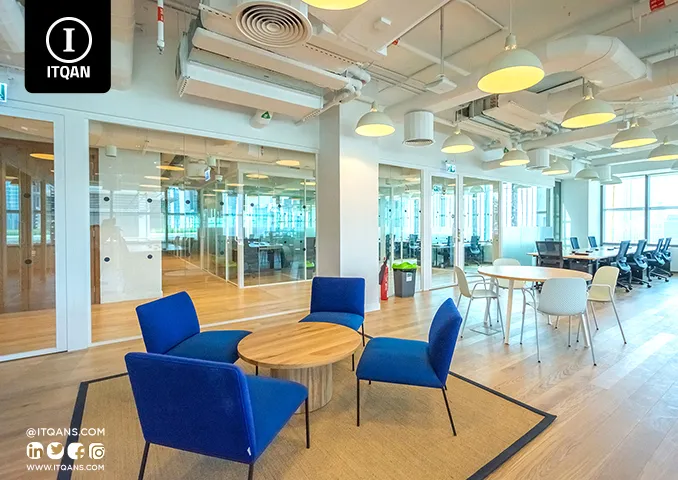Business Setup UAE: What You Need to Know Before Starting an E-Commerce Venture
Planning a Business Setup UAE for your online store? The United Arab Emirates (UAE) offers one of the most lucrative markets for e-commerce startups in the region. However, before diving in, every entrepreneur needs to understand the legal, logistical, and economic landscape of starting an e-commerce business in the UAE.
Why Consider Business Setup UAE for E-Commerce?
The UAE has rapidly transformed into a regional e-commerce hub, hosting thousands of successful online ventures. With a tech-savvy population, high internet penetration, and government support for digital trade, launching your e-commerce business here can be profitable and scalable.
- Tax advantages and 100% foreign ownership in free zones
- Access to global logistics infrastructure
- Growing online consumer base
These factors make Business Setup UAE more appealing for foreign entrepreneurs and startups.
Legal Structures for E-Commerce Ventures
Choosing the right legal structure is crucial. In the UAE, you can operate as:
- Free Zone Company: Offers full ownership and simplified regulation
- Mainland Company: Ideal if you plan to sell directly to the local market
- Offshore Entity: For online businesses not engaging with the local market
For more guidance on this, refer to our internal guide on how foreign entrepreneurs can establish an online company in Dubai.
Steps for Business Setup UAE in the E-Commerce Sector
Setting up an e-commerce venture in the UAE requires a few essential steps:
- Choose your business model and activity: Decide between B2C, B2B, or marketplace models.
- Select an appropriate jurisdiction: Choose between Free Zones or Mainland areas depending on your goals.
- Reserve a trade name: This must align with your business activity and avoid restricted words.
- Apply for an e-commerce license: This is mandatory and varies by jurisdiction.
- Setup a local or international bank account: Required for payment gateways and supplier transactions.
- Develop your website and digital marketing strategy: Your online presence is your storefront.
Check our detailed guide on E-Commerce Trade License in Dubai for specifics.
Documents Required for E-Commerce Business Setup
Here are the common documents needed for initiating a business setup in the UAE:
- Passport copy of owner(s)
- Visa and Emirates ID copies
- Business plan (depending on authority)
- Trade name reservation certificate
- Proof of office address
Key Considerations Before You Start
Understand Your Target Market
Conduct in-depth research to understand local consumer behavior. E-commerce trends in the UAE are influenced by cultural factors and high-end product demand.
Choose Suitable Payment Gateways
Payment gateway integration is critical. Look for trusted providers that support multi-currency and compliance standards such as PCI DSS.
Plan for Logistics and Delivery
Timely and efficient delivery is vital for customer satisfaction. Partner with logistics firms that understand the local geography and customs clearance protocols.
Costs Involved in Business Setup UAE for E-Commerce
The startup costs vary depending on your chosen jurisdiction and business size. Factors influencing cost include:
- Trade license fee
- Visa processing charges
- Office rent or virtual desk fee
- Website development & digital marketing
For a better understanding of trade license expenses, explore this breakdown of how much it costs to obtain a trade license in Dubai.
Free Zone vs. Mainland – Which One to Choose?
If your operations are fully online and you don’t plan to sell directly in the UAE market, a Free Zone may suffice. However, Mainland companies let you target local consumers more easily.
Popular Free Zones for e-commerce include:
- Dubai CommerCity
- Dubai Multi Commodities Centre (DMCC)
- Fujairah Free Zone
Regulations to Keep in Mind
The UAE continually updates its cyber laws and e-commerce regulations. Make sure you:
- Comply with data protection laws
- Avoid prohibited product listings
- Adhere to Ministry of Economy guidelines
Visit the official UAE Government Portal for the latest information on compliance.
Common Challenges in UAE E-Commerce
While starting a business in the UAE is relatively straightforward, online ventures still face unique challenges such as:
- Cultural barriers in marketing and advertising
- Payment gateway rejection for startups
- High cost of customer acquisition
These can be mitigated with proper strategic planning and local expert consultation. Learn more about overcoming these hurdles in this related article on common challenges when establishing an online business in Dubai.
Digital Marketing Strategy for New E-Commerce Ventures
To make your business setup in UAE successful, invest early in digital marketing. Key tactics include:
- Search Engine Optimization (SEO)
- Social media ads targeting local demographics
- Email marketing and CRM tools for retention
Final Thoughts on Business Setup UAE for E-Commerce
Starting an e-commerce business in the UAE is a lucrative opportunity if approached with the right planning and compliance strategy. Choosing jurisdiction, acquiring a suitable trade license, setting up secure payment systems, and understanding local customer habits are key steps to success.
Ensure your online business stands out and thrives in the UAE’s digital marketplace by leveraging expert assistance and ongoing market research.
FAQs
How long does it take to start an e-commerce business in the UAE?
It usually takes 1 to 4 weeks, depending on your selected jurisdiction and document readiness.
Can foreigners own 100% of an e-commerce business?
Yes, especially in Free Zones. Some Mainland licenses also allow 100% foreign ownership under new laws.
Is a physical office required?
Most Free Zones offer virtual office solutions, but some licenses mandate a physical address.












